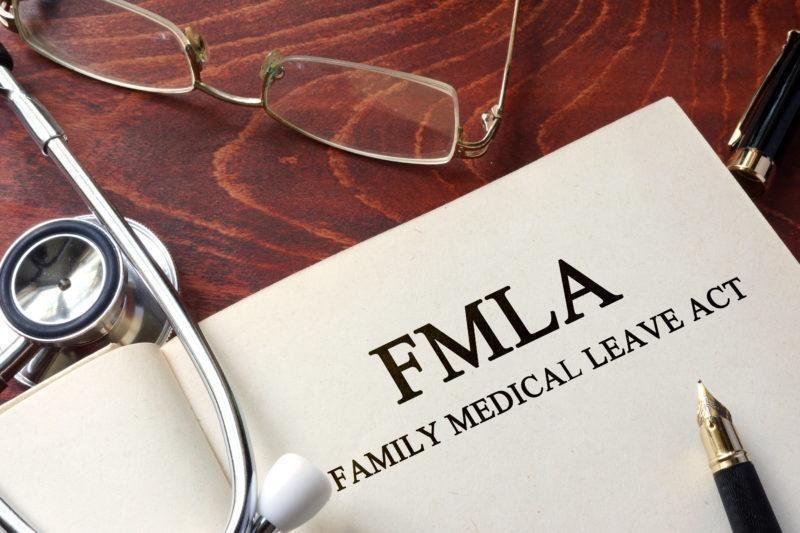Seventh Circuit Clarifies Definition of “Constructive Notice” of Serious Health Condition

On March 7, 2018, in the case of Guzmán v. Brown County, No. 16-3599, 2018 U.S. App. LEXIS 5722 (March 7, 2018), the Seventh Circuit Court of Appeals affirmed a District Court’s grant of summary judgment to an employer on a former employee’s claims under the Family and Medical Leave Act (FMLA) and the Americans with Disabilities Act (ADA).
The plaintiff employee in Guzmán was a 911 dispatcher for Brown County, in Wisconsin, which provided dispatch services for its fire departments, police departments, and emergency medical services agencies. The employee had been previously diagnosed with sleep apnea, which required her using a continuous positive airway pressure (CPAP) machine.
After having been disciplined for being late to work on four separate occasions, on February 9, 2013, Ms. Guzmán was late for work again. After unsuccessfully trying to reach the employee, the dispatch center manager had a deputy sheriff contact the employee, who eventually arrived at her workplace, claiming that she had overslept. At a subsequent disciplinary meeting, the employee was given a three-day suspension and warned that she could be terminated if she was late again. The employee did not bring up sleep apnea at that meeting, and it is unclear if Brown County was aware of her sleep apnea diagnosis or use of a CPAP machine.
On March 8, 2013, Ms. Guzmán was late for work again. At a disciplinary meeting held the next week, she brought in a medical note attributing her tardiness to sleep apnea. However, Ms. Guzmán’s employment was terminated at that meeting, on the basis of her having been late for work on March 8, 2013.
Ms. Guzmán filed suit with the United States Court for the Eastern District of Wisconsin, alleging interference with her FMLA rights, discrimination under the ADA, and retaliation under the FMLA and ADA. She specifically claimed that her tardiness was the result of sleep apnea that was diagnosed years earlier. Meanwhile, Brown County averred that it had fired Ms. Guzmán, due to her repeated tardiness. On September 1, 2016, the District Court granted summary judgment in Brown County’s favor.
In affirming the lower court’s summary judgment, the Seventh Circuit held that constructive (as opposed to actual) notice of a serious health condition requiring FMLA leave is a narrow exception to the Act’s notice requirement, and is generally limited to situations involving “stark and abrupt change[s]” in an employee’s behavior, which in this case did not apply to an employee’s recurring attendance issues consisting of six incidents of oversleeping in eighteen months.
The Seventh Circuit did not address the question of whether Ms. Guzmán was disabled, because the evidence on the record established that her supervisor did not know that she had sleep apnea prior to deciding to terminate her. Without evidence that the County was aware of her purported disability, the employee had no way of showing that the decision to terminate her employment was discriminatory. Specifically, the Seventh Circuit reasserted the long-standing precedent that an after-the-fact request for FMLA leave does not pose a legal impediment to an employer’s lawful employment decision that had been reached before the request for leave was made.
Claims under the Americans With Disabilities Act and the Family and Medical Leave Act have become increasingly commonplace in recent years. Therefore, employers should be mindful of the importance of the FMLA’s notice requirement in potential claims under these laws, in which plaintiffs have to establish that the employer somehow knew of an employee’s serious health condition upon taking an adverse employment action against him or her. The positive takeaway from Guzmán is that definition of “constructive notice” remains narrow, and will typically exclude employees with prior attendance issues who then present with additional ambiguous attendance issues.
This article is a publication of MWH Law Group LLP and is intended to provide general information regarding legal issues and developments to our clients and other friends. It should not be construed as legal advice or a legal opinion on any specific facts or situations. For further information on your own situation, we encourage you to contact the author of the article or any other member of the firm.
© MWH Law Group LLP 2018. All rights reserved.
CONTACT ATTORNEY CARLOS R. PASTRANA

CARLOS R. PASTRANA
Partner, Milwaukee
735 N. Water Street, Suite 610, Milwaukee, WI 53202
P: (414) 436-0353 / F: (414) 436-0354
E: carlos.pastrana@mwhlawgroup.com
Connect on LinkedIn | Download Attorney Biography

